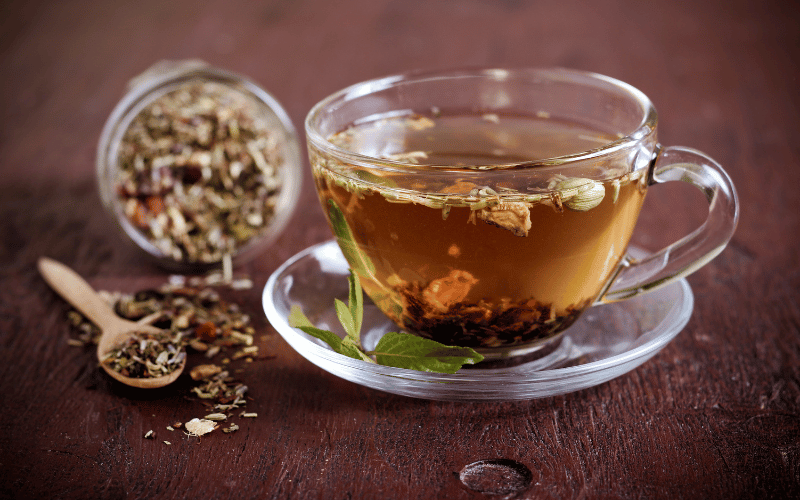5. Herbal Teas: Nature’s Gentle Whisper for Healing

Steeping a warm cup of herbal tea during illness is a ritual in many cultures. The comfort of holding a warm mug, the delicate aroma wafting in the air, and the soothing sensation as it goes down the throat; it’s therapeutic both for the body and the soul.
When we say herbal teas, we’re looking at non-caffeinated options like chamomile, ginger, or peppermint. Caffeine can exacerbate dehydration, which is counterproductive during diarrhea. But these herbal infusions? They’re a different story.
Take chamomile, for instance. This daisy-like flower, when brewed into a tea, offers anti-inflammatory and antispasmodic properties. It’s like a gentle massage for the intestines, reducing cramping and discomfort that often accompanies diarrhea.
Then there’s ginger, a root known for its potent anti-nausea effects. It doesn’t just stop at settling the stomach; its warm, spicy nature stimulates saliva, bile, and gastric juice production, aiding in digestion and providing relief.
Peppermint tea is another gem. Its primary component, menthol, is an antispasmodic. This means it can relax the muscles of the gastrointestinal tract, creating a soothing effect during bouts of diarrhea.
In addition to their direct benefits, these teas keep you hydrated. With diarrhea leading to fluid loss, it’s essential to keep replenishing the body’s water levels, and what better way than with a comforting cup of herbal tea.
All said and done, herbal teas are nature’s way of whispering comfort and healing into our systems. They’re not just beverages; they’re an experience, a remedy, and most importantly, a companion during tough times. (5)